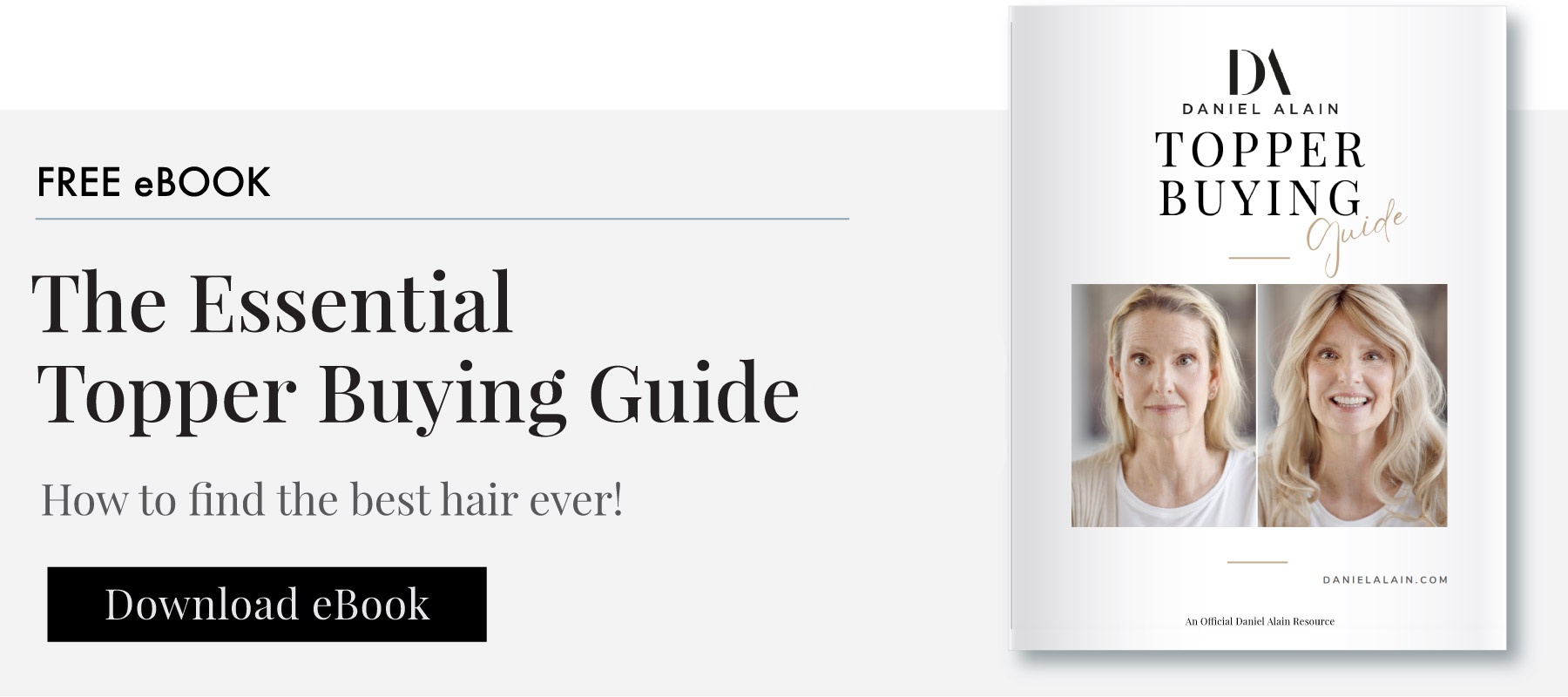The Problem With Supplements and Hair Growth Treatments
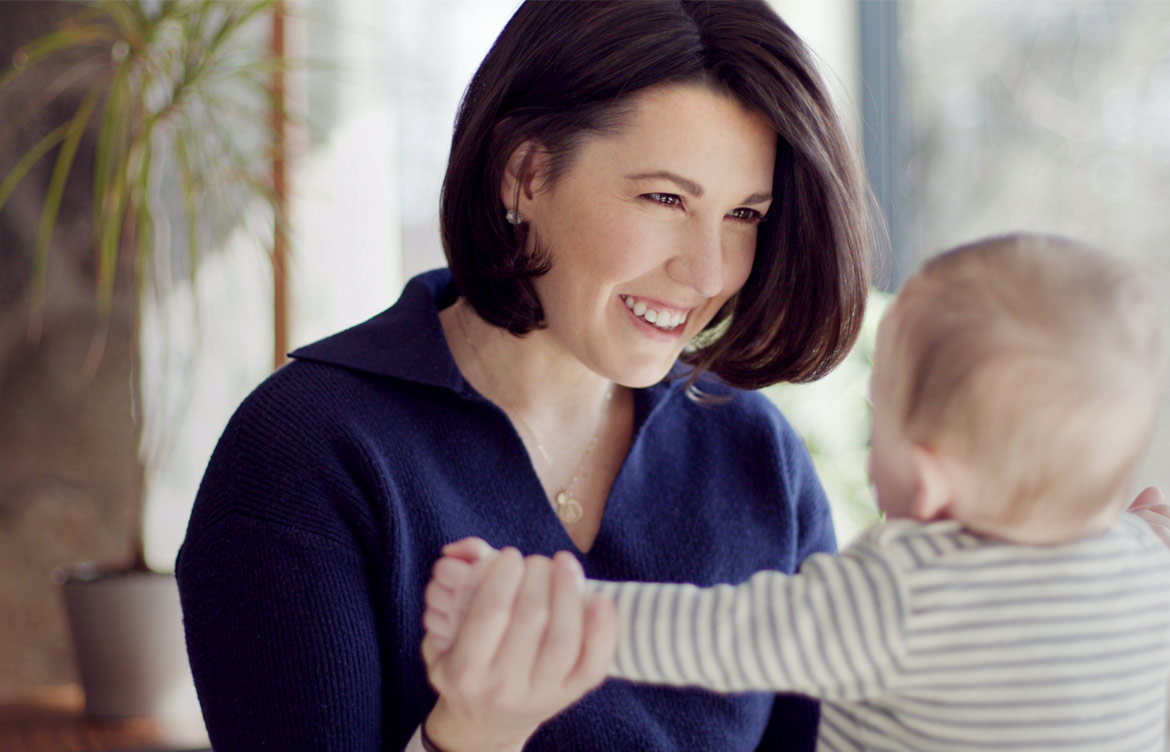
If you’re suffering from hair loss, you may have encountered the extensive array of products available on the market, all vying to restore your precious locks. Should you have ever succumbed to the temptation of clicking on an ad for hair regrowth serums or indulged in the allure of a scalp massager, you may have found yourself inundated with a captivating assortment of offerings, each making bold claims that appear to be almost too good to be true.
However, navigating this crowded landscape can be overwhelming, as you may find yourself disappointed with the outcomes or skeptical about the effectiveness of these products. If you’ve ever experienced frustration or confusion while seeking a hair regrowth solution, you are not alone.
As industry experts with a deep understanding of hair care and a portfolio of clinically-proven hair loss solutions, Daniel Alain has extensively researched hair regrowth treatments. With a focus on scientific evidence and customer experiences, we have gained valuable insights into the pitfalls, limitations, and benefits of these treatments. Our expertise lies in deciphering the complexities of hair health and providing evidence-based information to empower you to make informed decisions.
At the end of the day, we want you to make the best choice for you. We believe you deserve to have the best information that will empower you to make the right decision based on your hair loss situation and individual needs. In this article, we will go over the pros and cons of some of the most popular hair regrowth products on the market and we will give you an honest assessment of each. Hair loss can feel like a lonely experience, but we aim to guide you through it with unbiased information and unwavering support.
Commonly used supplements for hair regrowth

When it comes to regrowing your hair, the range of supplements on the market offer tantalizing promises, and many claim to be the secret elixir for hair regrowth. While some of these supplements boast robust scientific support, others rely on anecdotal evidence and personal testimonies.
Real-life Daniel Alain customer Marlo, certainly tried more than her fair share of supplements to regrow her hair before she started wearing a Follea human hair topper.
“Throughout my hair loss journey, I have tried so many different things. All kinds of serums, shampoos, supplements, and scalp scrubs,” explains Marlo.
Marlo’s hair loss is caused by an early, and serious bout of COVID before vaccines became available, as well as postpartum hormonal changes after giving birth to her bouncy baby boy.
“Experiencing hair loss was crippling,” she recalls. “I really wanted my hair to grow back with full luster and volume, and I tried to find a solution that was going to be a good fit for me.”
Some of the most commonly used supplements include biotin, iron, and zinc.
Biotin, a B vitamin, has been associated with hair health and although scientific evidence supporting its effectiveness in significant hair regrowth is limited, biotin can help to prevent further hair loss.

Iron deficiency has been linked to hair loss, making iron supplements potentially beneficial for people with low iron levels. Iron is an essential mineral involved in the transportation of oxygen and various metabolic processes in the body, including hair growth. In cases where hair loss is caused by an iron deficiency, an iron-rich diet or iron supplements can help regrow hair, but it’s crucial to consult with a healthcare professional who can assess your iron levels and determine an appropriate course of action.
“I really wanted to take a deep dive into why my hair was thinning and understand the reasons behind it,” says Marlo. “I wanted to know and understand that for myself before I did anything. I tried natural supplements and changed my diet. Although those things work for some, they didn’t work for me.”
Zinc deficiencies are less common in developed countries, but can lead to hair loss by disrupting the normal hair growth cycle. Hair follicles go through a cycle of growth, rest, and shedding and insufficient zinc levels can disrupt these processes and lead to impaired hair follicle growth and ultimately result in hair loss.
Unfortunately, the efficacy of hair supplements is a topic that often encounters limited scientific evidence. While some supplements have garnered attention for their potential benefits in promoting hair growth, the available scientific research in this area remains relatively sparse and this poses a challenge in establishing conclusive evidence regarding their efficacy.
“With the things I was trying, I didn’t see any fast results. While I waited, my hair loss was becoming even more dramatic,” says Marlo.
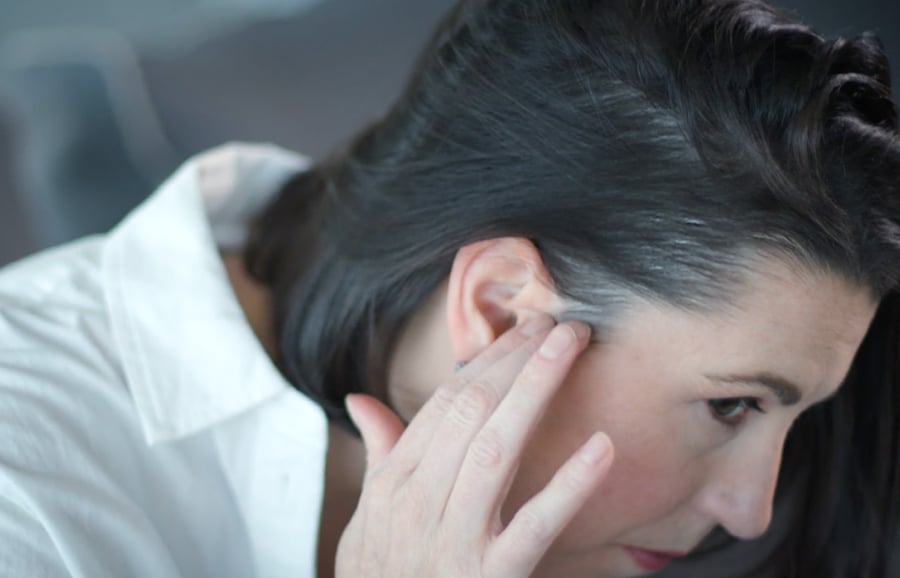
Why the lack of extensive scientific research? Hair regrowth is a complex biological process and is attributed to various genetic, hormonal, and environmental factors. This makes it very difficult to isolate the effects of individual supplements. In addition, individual responses to supplements can vary widely, as different people may have diverse underlying causes for their hair loss or different levels of nutrient deficiencies. What works for one person may not yield the same results for another.
Topical treatments to regrow hair
Topical treatments include over-the-counter or prescription medications that are applied directly to the scalp, such as FDA-approved, minoxidil and finasteride.
“Some treatments weren’t an option for me because I’m breastfeeding. I’m very careful about the things I’m putting on my skin or in my body,” explains Marlo. “I wanted to take a more holistic approach that wasn’t so invasive."
Minoxidil is a topical medication commonly used for the treatment of hair loss. Originally developed as an oral medication for hypertension, it was later discovered that applied topically, it could stimulate hair growth. By widening blood vessels, minoxidil improves blood flow to the hair follicles and is believed to promote hair growth and prolong the growth phase of the hair cycle.
However, unlike supplements for hair growth, minoxidil has undergone many trials and studies, and experts have concluded that minoxidil’s effectiveness is not universal. While many brand-name versions of the drug claim positive success rates, minoxidil was found to be significantly effective for only around 30–40% of women and 50% of men. The outcomes of minoxidil treatment can vary greatly, and it may not bring substantial benefits for a majority of users.
The research team at Daniel Alain discovered the SULT1A1 enzyme and how its presence is crucial to the efficacy of minoxidil. Without a significant level of this enzyme, minoxidil is ineffective. While Marlo knew minoxidil wasn’t an option for her, if you’re curious about minoxidil for yourself, we’ve developed the Minoxidil Response Test.
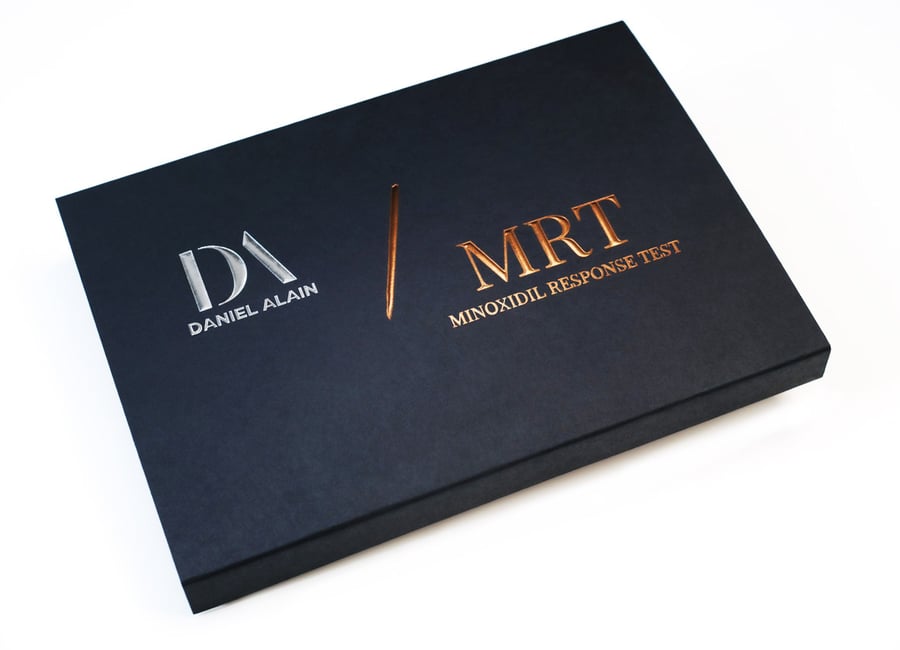
The Minoxidil Response Test (MRT), developed by Daniel Alain is a notable advancement in the field of hair loss research and can analyze six strands of hair to assess the presence of the SULT1A1 enzyme. MRT offers a convenient and relatively quick way to gain insights into the potential benefits of minoxidil as a treatment option and can help you make an informed decision about your hair loss management.
Not only will the effectiveness of minoxidil as a hair loss treatment vary among users, but the time it takes to see results will differ as well. Studies have shown that it can take nearly a year to achieve maximum regrowth while taking minoxidil. If you know you have the SULT1A1 enzyme, you should be patient and consistent when taking the medication to see the full potential of its effects.
Scalp massager for hair health
While scalp massagers can contribute to scalp and hair health, they are not a standalone treatment for hair regrowth. Scalp massagers are tools designed to stimulate the scalp through gentle massage and vibration. While they can feel relaxing and provide a pleasurable experience, it’s important to manage expectations regarding their effectiveness in regrowing hair. They are not a direct solution for hair regrowth as they do not address the underlying causes of hair loss. However, they can offer some potential benefits for overall scalp and hair health.
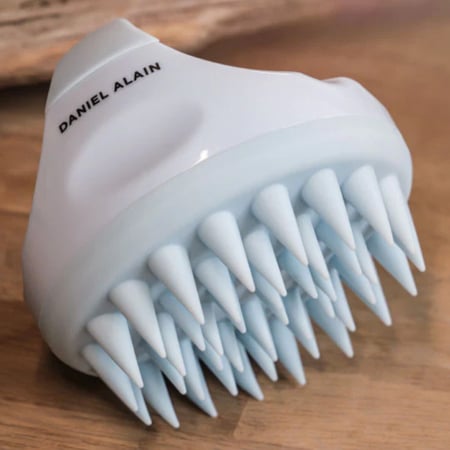
By improving blood circulation to the scalp, a massager can enhance the delivery of oxygen and nutrients to the hair follicles and promote a healthy scalp environment. Additionally, scalp massage can reduce tension and stress, which may indirectly benefit hair health, as stress is often associated with certain types of hair loss.
Scalp massagers can also help with the distribution of hair care products, such as shampoos, conditioners, and oils, making them more effective in nourishing the scalp and hair strands.
Human hair toppers for hair loss
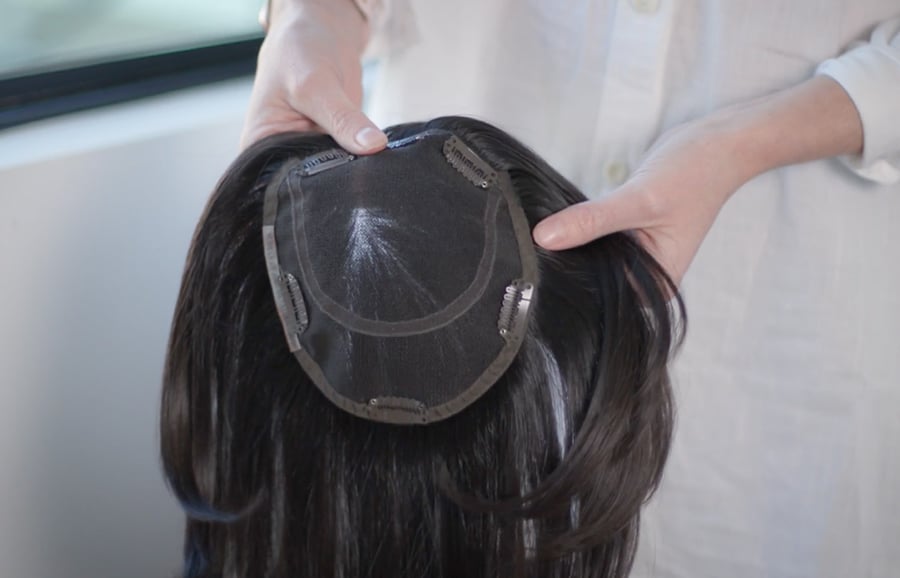
Human hair toppers offer guaranteed and instant results for individuals experiencing hair loss. Unlike supplements or topicals that require consistent and long-term usage before any noticeable improvements are seen, hair toppers deliver immediate results and visible transformations.
Hair toppers are designed to seamlessly blend in with your existing hair, providing instant coverage and volume to areas affected by hair loss. They come in various sizes, colors, and lengths, and can be customized for the most natural look. While we know that toppers aren’t right for everyone, if you’re dealing with thinning hair or bald spots and have a strong front hairline, a hair topper can effectively conceal your concerns and restore your confidence in an instant.
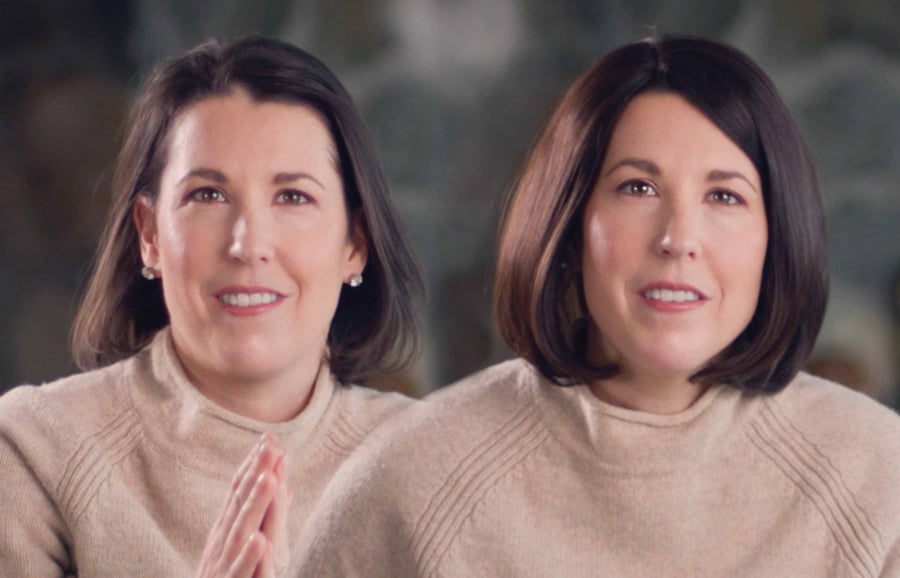
“Using ointments and serums on my skin felt a little unsettling to me, especially when some treatments are unregulated and not backed by science,” explains Marlo. “Finding a hair topper that could help restore my confidence felt amazing.”
After exploring supplements and other hair regrowth treatments in her quest to address her hair loss, and failing to see any results, Marlo felt frustrated and like she had hit a dead end. It was time for her to take a different approach. She scheduled a consultation at The Salon at 10 Newbury, a retailer for Follea human hair wigs and toppers by Daniel Alain, located in Boston, MA.
Marlo knew that her hair loss wasn’t advanced enough to require a full wig, and she was excited to learn about our human hair toppers that provide partial volume and coverage. Avoiding the common problems with hair toppers and with the help of the consultants at the salon, Marlo found the perfect topper that matched her existing hair and blended seamlessly. It was a transformative experience that allowed her to feel like herself again and embrace her appearance with renewed self-assurance.
“A topper is a low-risk option. It’s not impacting my body and I haven’t had any additional hair loss due to the clips. I highly recommend taking the plunge if you’re feeling frustrated with other approaches.”
Is a human hair topper the right option for me?
When you’re suffering from hair loss, it can be difficult to find an effective solution. Unfortunately, it’s common to feel frustrated and disappointed if the treatments you’re trying don’t produce the results they promise. The promise of a quick fix may have even made you feel duped if you’ve encountered the limitations of the treatments on today’s market.
We hope we’ve given you some food for thought as you continue your quest for an effective solution to your hair loss.
If you’re considering a human hair topper and would like to speak to one of our consultants about which Daniel Alain topper is right for you, booking an appointment for a free consultation is the best way to get your questions answered. Hair loss is an isolating experience but we hope to help you navigate the journey.

.jpeg)
